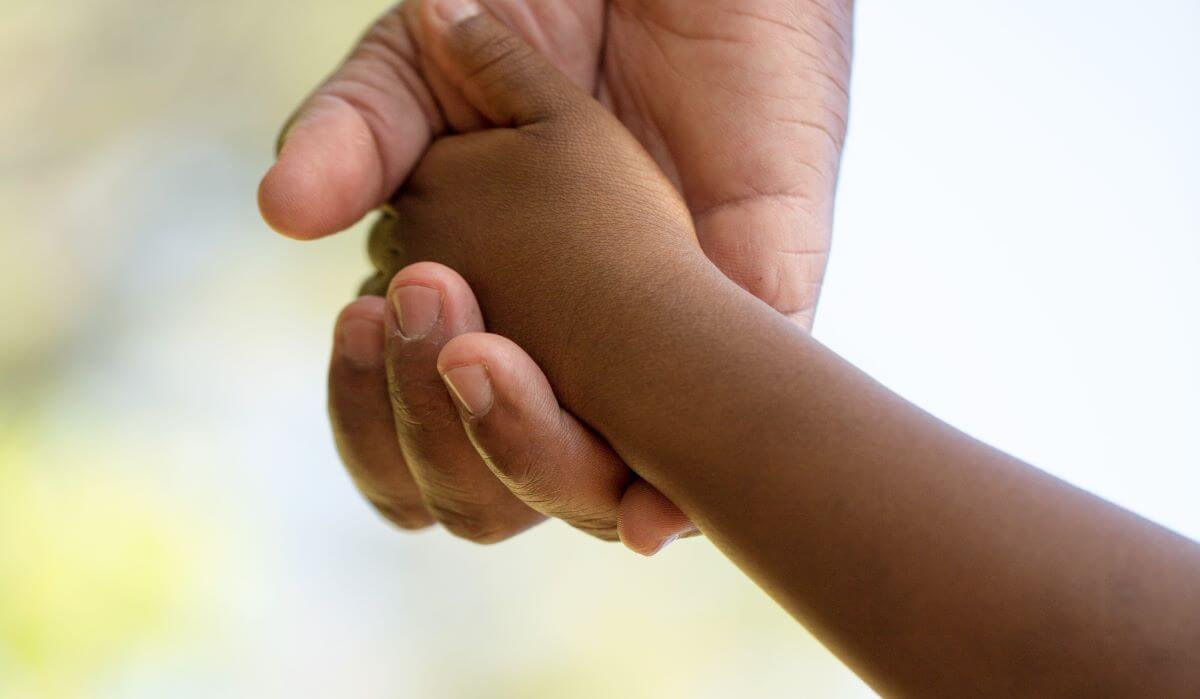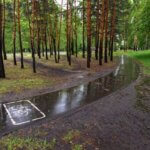It was a day I had both imagined and feared for my entire life. I have spent years searching and wondering, looking into crowds with the hope that maybe it was him. The journey to find my biological father had been filled with painful dead ends and devastating revelations. Still, something deep inside pushed me forward and somehow motivated me to click “send.”
My college years were spent in the same city where I knew my biological parents were from. I also knew that they both attended a local Catholic high school, and that my father liked music and allegedly was a musician wanting to make it big and was a little older than my biological mother. Since I was living in and building my life in the area , I wanted to know who my biological father and his family were for the main purpose of connecting my identity back to their roots. But also, because I was dating and didn’t want to end up dating my cousin or, God forbid, my brother!
I gained the courage to ask my biological mother about him but was met with misleading information that ultimately caused me to stop my search. I was beyond devastated by the information she shared. The allegation ripped me to my core, and I was on the train of self-sabotage because how could I be the product of something so vile?
As time went on, I regained my life and set out on the path God intended for me. With new knowledge and wisdom, I began to wonder and question the allegations. During this time, DNA testing became more and more popular through 23 and Me, Ancestry.com, FamilyTreeDNA, and others. A close friend of mine, a fellow adoptee, found his father through one of those sites! The story was beyond incredible and gave me the hope and courage to order one for myself. It was so scary, and I began to wonder and search once again. I was met with nothing.
Within a few years, my dad, who adopted me with my mom, passed away. Being the Daddy’s Girl that I was, plus adding the multi-layer complex layers of adoption—I was crushed. In addition to my loss, I decided to completely stop looking for my biological father because every daydream included my parents in our first meeting with a special moment of my dad and my father embracing. And now, it just wouldn’t be. I was done.
Then, in 2022, I read Black Cake and was in the middle of reading Lessons in Chemistry—both stories with adoption experiences. On a warm September day, I attended a gathering where another friend was reconnecting with her father. She shared her story with me, and one part especially caught my attention and stuck with me. She found him on Facebook. I enjoyed the evening with my friend, her family and my children and I went home. That night as I finished Lessons in Chemistry, it dawned on me that you can type in a person’s name and find them on Facebook–what a concept!
With a major pit in my stomach, I took a leap of faith, and I typed “Kevin Hawkins” into Facebook’s search bar. And amidst a sea of profiles, one stood out. A profile picture of Tupac and a series of photos revealing details that felt too familiar to ignore. I was drawn in completely and couldn’t click or scroll fast enough. His love for music, his date of birth, and his connection to the local Catholic school that were listed in his summary were all things that matched the information given to me in my adoption papers.
And then there were other things about this man Kevin that were so familiar. He did stuff with electricity, his service in the military, and one of his daughters was a Daddy’s Girl. This new information that I gathered through Facebook stalking, connected me right back to my adoptive dad. My dad was a handyman and rewired our entire house, he served in the military, and I was a Daddy’s Girl. Could this truly be him? I was so nervous and barely dared to hope. I shared the screen with my husband, he said, “Girl, if you don’t message him! He looks exactly like you!”
Nervously, I crafted a message the following morning, half hoping and half dreading a response.
Two weeks later on September 26, the DNA results were in, and he was 99.9% my father! When we finally stood face to face two days later, the world seemed to stop. Time folded, and all the years of wondering and imagining melted away into a single, undeniable truth: he was real, and he was mine. His embrace was warm, his voice steady but filled with emotion as he repeated, “Wow.” In his eyes, I saw reflections of myself, parts of me I had longed to understand. He hadn’t known I existed, but in that moment, all that mattered was that we had found each other. Tears flowed freely, and for the first time, the missing piece of my identity felt whole.
Meeting my father taught me powerful lessons about identity, healing, and connection. It reminded me that the journey of self-discovery is not linear but filled with unexpected turns that lead us closer to understanding who we are. Through pain and uncertainty, there is also the possibility of joy and reconciliation. For adoptees, birth parents, and adoptive families, the lessons I’ve learned are a reminder that even in brokenness, there is hope. Here are a few things to consider while journeying through:
The Power of Honest and Age-Appropriate Communication
Discovering the circumstances of my birth through an email was a jarring and painful experience. If the truth had been shared earlier, in a careful and sensitive way, I might have been better prepared to process it. Meeting my father added new layers to the narrative, allowing me to see beyond the pain to the complexity of the story.
Adoptive parents can help their children by sharing their adoption story in age-appropriate ways, which will create trust and will enable children to process their identity over time. Truth shared with care can be a tool for healing, not harm. I can remember my mom taking me to a special dinner where I learned a lot about my adoption story. It would not have been age-appropriate for me to learn about the allegations at that time; however, I do wish I had learned about and had time to process that information in the protection of my parents
The Importance of Acknowledgment and Validation
Meeting my birth father validated a part of me I didn’t even realize was within me. For adoptees, the longing to be acknowledged for who they are runs deep. I had spent years hoping for a moment of recognition from my birth mother but that never came. But when I stood face to face with my father, his emotional response and embrace made me feel seen in a way I had always desired.
Acknowledgment is transformative. For adoptive parents, it’s essential to affirm children’s identity and emotions, creating a space where feelings can be expressed without judgment. This gift was given to me by my adoptive parents where validation provided a foundation for belonging and self-worth.
Healing Through Connection and Community
Reuniting with my birth father was a pivotal moment in my journey toward healing. It wasn’t just about finding him; it was about understanding myself through the parts of him I saw in me. His presence filled gaps in my story, and his willingness to connect gave me a sense of belonging I had been searching for.
Encouraging connection within families—whether through adoptive relatives, birth families, or community—can be a powerful way to support adoptees. Shared experiences and relationships provide grounding and a sense of identity. I was on an adoptee panel where we shared our experiences. It was through that experience that I learned about the statistics about adoptees, the fact that we were survivors, and to change the language from “I was adopted” to “I am adopted.” This connection and community was so important to my journey.
Acknowledging Grief and Loss
Adoption is filled with moments of joy, but it also involves profound loss. Meeting my father brought clarity but also unearthed grief for the years we had missed and the milestones that had passed without him. My adoptive parents were instrumental in helping me navigate the grief I held with my adoption, providing safe spaces to express my pain. It was okay that I felt longing to know more and miss what I did know existed.
Adoptive parents should recognize that grief is a natural part of adoption and that it is not a sign of ingratitude. Supporting adoptees through their pain allows them to process their experiences and begin to heal.
The Lifelong Journey of Identity Formation
Meeting my father was not the end of my journey but a significant milestone in an ongoing process of self-discovery. Seeing parts of myself in him helped me better understand who I am. Becoming a parent myself added another layer to my identity, as I reflected on the connections I was creating for my own children.
Adoptive parents can support this journey by celebrating their child’s growth and revisiting the adoption story at different life stages. Encouraging exploration and expression helps adoptees define their identity on their own terms.









0 Comments